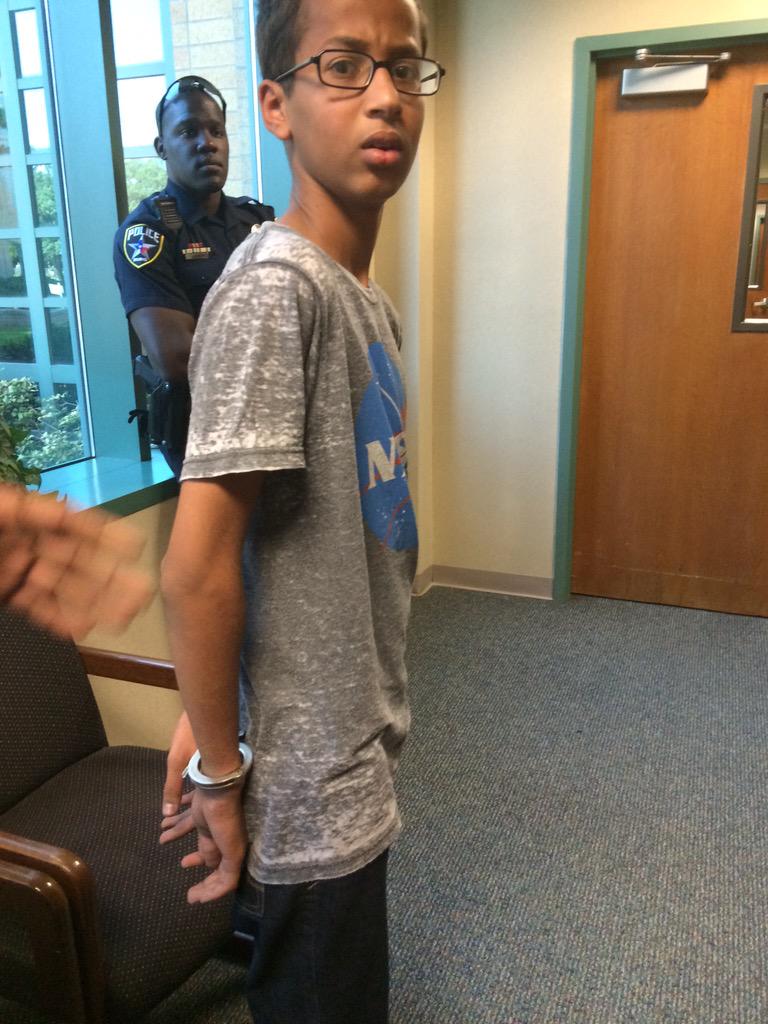From NJ.com - Apologies for the formatting.
How to build a sports superstar in 2015: The engineering of 15-year-old Josh McKenzie
Email the author | Follow on Twitter
on September 01, 2015 at 8:00 AM, updated September 01, 2015 at 10:02 PM
He is 15 years old, 5-foot-9 and 185 pounds of cartoonish muscles on top of muscles. He had six-pack abs when he was 6.
Today, he bench-presses one-and-a-half times his body weight and can leap
from a standing position to the top of a car. He averages four touchdowns
per game and hasn't lost a wrestling match since 2012, making him the
nation's top-ranked football player and wrestler for his grade. And even
though he doesn't begin high school for another two weeks, he already
is one of the most talked about athletes in New Jersey.
His name is Josh McKenzie.
But people just call him Man-Child, D-Train, Animal, Machine or Beast,
and he is a once-in-a-lifetime physical specimen who looks like he was
engineered in a lab, each piece meticulously sculpted, tested and refined.
Josh also embodies the runaway free-for-all youth sports have become.
Specialized training. High school coaches lining up to woo players. Working
out to the point of total exhaustion. Repeating a grade for athletic advantage.
Bouncing from team to team. It's all part of his family's all-in,
college-scholarship-or-bust gamble.
Sound extreme? Consider:
This past year, Josh's family spent more than $15,000 on specialized
training and thousands more to parade him around at showcases,
tournaments and all-star events from Florida to California.
Most of the 10 specialized
personal trainers he will see during the year — that's right, 10 trainers —
rely on state-of-the-art techniques and put Josh through futuristic workouts.
He takes it a step further by wearing a Darth Vader-like elevation mask to restrict breathing and simulate training at elevations.
Today, he bench-presses one-and-a-half times his body weight and can leap
from a standing position to the top of a car. He averages four touchdowns
per game and hasn't lost a wrestling match since 2012, making him the
nation's top-ranked football player and wrestler for his grade. And even
though he doesn't begin high school for another two weeks, he already
is one of the most talked about athletes in New Jersey.
His name is Josh McKenzie.
But people just call him Man-Child, D-Train, Animal, Machine or Beast,
and he is a once-in-a-lifetime physical specimen who looks like he was
engineered in a lab, each piece meticulously sculpted, tested and refined.
Josh also embodies the runaway free-for-all youth sports have become.
Specialized training. High school coaches lining up to woo players. Working
out to the point of total exhaustion. Repeating a grade for athletic advantage.
Bouncing from team to team. It's all part of his family's all-in,
college-scholarship-or-bust gamble.
Sound extreme? Consider:
This past year, Josh's family spent more than $15,000 on specialized
training and thousands more to parade him around at showcases,
tournaments and all-star events from Florida to California.
Most of the 10 specialized
personal trainers he will see during the year — that's right, 10 trainers —
rely on state-of-the-art techniques and put Josh through futuristic workouts.
He takes it a step further by wearing a Darth Vader-like elevation mask to restrict breathing and simulate training at elevations.
~~~~~~~~~~
There's much more to this story that can be found at the link below.
http://www.nj.com/sports/index.ssf/2015/09/the_engineering_of_15_year_old_josh_mckenzie.html#incart_river






